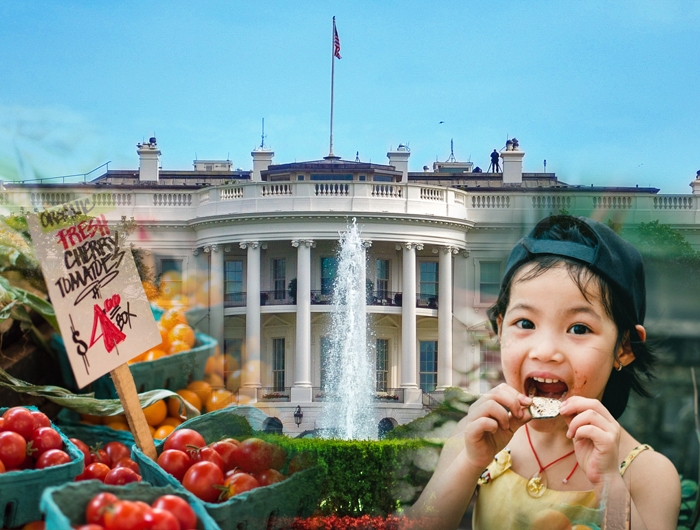On hunger and health, can Biden top Nixon?

David Everett Strickler, Anne Preble, Tong Nguyen Van - unsplash.com
Richard Milhous Nixon is remembered for quite a bit: opening relations with China; escalating then ending the war in Vietnam; the corruption of Watergate, and, yes, the tapes.
But Watergate’s long shadow obscures a Nixon achievement that should be celebrated: Improving the way America eats.
In 1969, President Nixon convened the first White House Conference on Food, Nutrition, and Health. While many conferences and commissions produce reports that disappear into obscurity, this one stayed with us: The 1969 conference report generated some 1,800 specific policy recommendations. Two years later, over 1,600 were implemented.
The Food Stamp program—now the Supplemental Nutrition Assistance Program (SNAP)—was expanded dramatically while the federal school meals program was enlarged to include breakfast. A new program supporting Women, Infants, and Children (WIC) was created to meet its participants’ unique nutritional needs. And the conference sparked the first Dietary Guidelines for Americans, the government’s basic dietary advice, which now drives much federal nutrition policy.
What mark will President Biden leave on our country’s food system?
The answer may come on September 28 when the Biden White House convenes its own White House Conference on Food, Nutrition, Hunger, and Health, the only such conference in the intervening half-century.
While the main impetus for the earlier conference was a widening appreciation of the extent of hunger in the United States, our present challenges reach far beyond. In addition to the unvanquished pockets of hunger, we face an epidemic of chronic diet-related diseases such as type 2 diabetes and cardiovascular disease, as well as skyrocketing obesity rates. Many of these same diseases, driven in part by a food environment that doesn’t support healthy eating, added to the COVID-19 toll when they turned out to be associated with poorer clinical outcomes.
What to do?
A Government Accountability Office report found that federal food policy is badly fragmented with some 200 efforts related to diet across 21 federal agencies. At a minimum, the September conference should follow the GAO’s recommendation to put a new White House official in a coordinating role.
One of the most straightforward actions the administration could take would be to put its money where its mouth is: an Executive Order to require use of food service guidelines for food and beverages sold and served at federal facilities. Such guidelines would leverage government purchasing power to improve health outcomes and reduce long-term health care costs for millions of people, including federal employees, veterans in VA hospitals, members of the military, and those incarcerated in federal prisons.
The original conference also provided the impetus for Nutrition Facts labels. But food labels have not kept pace with changing consumer habits and industry marketing practices. For example, Americans are increasingly using online ordering and food delivery, but outdated policies mean nutrition information requirements don’t always apply in the online environment. Also, Nutrition Facts labels can be overwhelming, requiring time, nutrition literacy, and numeracy skills to decipher. As a result, people with lower incomes, less education, and a primary language other than English benefit less from current labels.
Just last month, Canada adopted a front-of-package labeling policy requiring labels that clearly indicate whether the food is high in saturated fat, sodium, or added sugars. Several other countries have adopted similar policies and studies from Chile (the earliest adopter) show the policy was followed by a spate of reformulations by companies eager to avoid labels drawing attention to their products’ deficiencies. Why should the U.S. remain behind the curve?
But providing information is not enough. The Food and Drug Administration recently released its voluntary sodium reduction guidelines which require graduated reductions in dozens of different food categories. The conference should secure commitments from companies pledging to meet them. But FDA should consider similar targets for added sugars and ensure consequences for company non-compliance. To further drive down sugar consumption Congress should tax sugar-sweetened beverages as several major U.S. cities already have.
Joseph Robinette Biden will likely be best remembered for steering the nation out of the twinned trials of the COVID-19 pandemic and the data-free Trump administration. But let us hope that fifty years hence his administration will also be remembered for taking on and fixing our fragile and fragmented food system.

